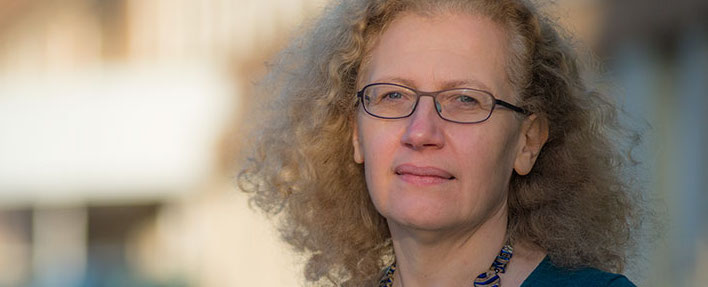
Thursday, 9 May 2019, from 10am to 5pm, Porthania P545 (Faculty room).
The 2019 main event of the Helsinki Socio-Legal Initiative (HSLI) addresses the largely untapped potential of ethnographic methods (participant observation, qualitative interviewing, etc.) in the socio-legal study of law. A common misconception associates ethnography exclusively with the anthropological study of ‘exotic’ legal cultures. Far too little information is available on what these methods have offered – and continue to offer – the study of law and legal institutions in our own contemporary world. What added value do ethnographic methods represent? What new perspectives into familiar phenomena can they open?
In addition to a keynote address by Professor Marie-Benedicte Dembour (Brighton), a leading human rights scholar at the intersection of law and anthropology, and a panel discussion with leading experts, the one-day event includes a session dedicated to individual papers in which ethnographic methods have either been used or are being planned.
The event is open to all interested.
The event has been made possible with generous support from the Hilkka and Otto Brusiin Foundation and through collaboration with the Helsinki Collegium for Advanced Studies (HCAS).
Programme
- 10:15am Opening words
Professor Panu Minkkinen (Helsinki) - 10:25am Keynote address
Professor Marie-Benedicte Dembour (Brighton), ‘The four anthropological mottos and the study of law’ - 11:15am Discussion
- 11:45am Lunch break (at your own expense)
- 1:15pm Paper presentations, followed by discussion
- Nora Fabritius (Helsinki), ‘Ethnic and national identities in cultural minority rights argumentation – looking into rights talk at the grass-root level’
This paper presents a close reading of everyday rights talk on the grass-root level of a multicultural locality in Northern Norway. It puts explicit focus on the methods used; Argumentation and Discourse Analysis. The paper underlines the importance of taking into consideration the local context when implementing minority rights since rights and identities are negotiated in plural and fragmented ways in relation to other groups, the nation, and the regional community. For this, ethnographic studies have much to offer. The study shows how everyday rights talk becomes intertwined with the ways those the rights aim to protect understand, present and describe themselves and their neighbours. - Mehrnoosh Farzamfar (Helsinki), ‘Applying human rights-based soft security measures in response to the contemporary security-related challenges of immigration: a transformation of global governance’
In my PhD dissertation, I argue how there could be a reconciliation between conserving the national security of states and the safety of host societies, on the one hand, and ensuring the human rights of immigrants, on the other hand, by adopting a human rights-based approach to security issues, instead of securitisation of immigration. Due to the multi-faced nature of the topic of my PhD research, this study is a multi-disciplinary investigation combining law, political science, and social science. - Stephen Phillips (Åbo Akademi), ‘State-created vulnerability through denial of access to services: the case of single male asylum seekers’
This paper explores the extent to which the denial of the vulnerability label to certain individuals and groups can lead to an increase in their level of vulnerability, as through their exclusion from services they are often placed at greater risk. In this research I will draw on my experiences as a caseworker in a small NGO in Australia where I worked with community based asylum seekers. I plan to return to this NGO and observe sessions with clients, as well as conduct interviews with clients and staff. This case study will be used as a reference point to examine how the vulnerability concept is theorised, constructed and applied, and to demonstrate the exclusionary nature of the vulnerability concept and its potential (mis)use as a tool of power. - Discussants: Professor Jo Shaw (Edinburgh/Tampere) and Associate Professor Magdalena Kmak (Åbo Akademi)
- Nora Fabritius (Helsinki), ‘Ethnic and national identities in cultural minority rights argumentation – looking into rights talk at the grass-root level’
- 2.45pm Coffee break
- 3:15pm Panel discussion: ‘Law and ethnography’, followed by q&a/discussion
Panellists: Professor Jane Cowan (Sussex/HCAS), Professor Marie-Benedicte Dembour (Brighton), Dr Miia Halme-Tuomisaari (HCAS). - 4:30pm Final discussion
- 4:45pm End of seminar
About the keynote speaker

Marie-Benedicte Dembour is Professor of Law and Anthropology at Brighton Business School, University of Brighton, UK. While Professor Dembour’s research interests cover a wide range of subjects in the anthropology of law, her particular area of expertise is international human rights law. Her numerous publications include the book Who Believes in Human Rights? Reflections on the European Convention (CUP, 2006) which examines how classical critiques of human rights (realism, utilitarianism, Marxism, feminism and cultural relativism) manifest themselves in the case law of the European Court of Human Rights (ECtHR) showing that the ECtHR must confront the dilemmas and contradictions these critiques highlight. Her latest award-winning monograph, When Humans Become Migrants. Study of the European Court of Human Rights with an Inter-American Counterpoint (OUP, 2016), reveals how the ECtHR was never especially pro-active at defending migrants’ rights. It contrasts ‘the Strasbourg reversal’, which puts the principle of state sovereignty and border controls before human rights, to the pro-human approach adopted by the Inter-American Court of Human Rights.
About the panellists
 |
Jane Cowan is Professor of Social Anthropology at the University of Sussex, UK. During the academic year 2018-2019, she is Jane and Aatos Erkko Visiting Professor at the Helsinki Collegium for Advanced Studies (HCAS). |
 |
Miia Halme-Tuomisaari is a legal anthropologist specialised in the analysis of the contemporary human rights phenomenon. She is currently Core-Fellow at the Helsinki Collegium for Advanced Studies (HCAS). |
